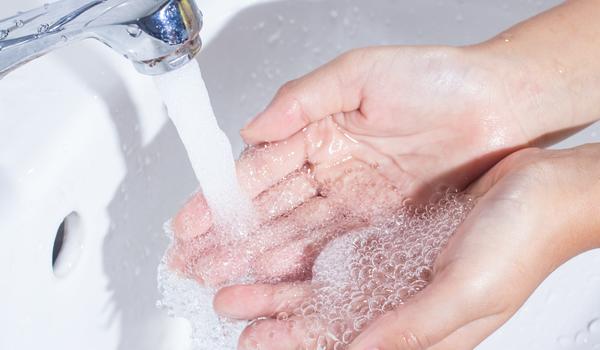Minimising infection risk

If you are receiving chemotherapy, you may develop neutropenia, a condition in which your body has a reduced number of a specific type of white blood cells called neutrophils, which are needed to prevent and fight infections.1,2 If you develop neutropenia you will be more susceptible to infections; therefore, while you are receiving chemotherapy you will need to take precautions to reduce the risk of infections.1,3
Precautions to minimise infection risk
Try to make the following precautions part of your daily routine:3,4
Personal hygiene and preventive healthcare
- Wash your hands frequently and thoroughly, especially before meals, after shaking hands, or after using the WC4
- Use a soft toothbrush and an antiseptic mouthwash3
- Bathe every day and keep your skin moisturised with an unscented lotion3
- Avoid sharing towels with other people4
- Shave with an electric shaver; avoid razors4
- Get flu shots3,5
- Avoid contact with people who may have recently received live vaccines5
- Female patients should avoid using tampons4
Food preparation
- Avoid sharing food, drink, utensils, or other personal items with other people3
- Cook all meat and poultry thoroughly3
- Wash fruit and vegetables carefully and thoroughly5
- Keep all household surfaces clean3
Interaction with people, animals, and the environment
- Avoid crowded spaces and contact with people who are ill5
- Wear protective gloves if cleaning up pet waste (both urine and faeces)5
- Wash your hands thoroughly after cuddling or stroking pets3,5
- Wear gloves when gardening3
Signs and symptoms of infections
Neutropenia often masks the signs and symptoms of infection.6 A fever, i.e. a temperature above 38°C, is often the first sign of infection, but you should also be on the lookout for any of the symptoms listed below:3
- A temperature of 38°C or higher for longer than 60 minutes, or a one-time temperature of 38.4°C or higher; this indicates a condition called febrile neutropenia, which is very serious2,3
- Chills and sweats3
- Changes in an existing cough, or a new cough3
- Sore throat, or development of a new mouth sore3
- Shortness of breath3
- Nasal congestion3
- Stiff neck3
- Burning or pain during urination, or increased frequency of urination3
- Unusual vaginal discharge or vaginal irritation3
- Irritation, tenderness, or swelling in any area, including surgical wounds and ports3
- Diarrhoea and/or vomiting3
- Any new pain, especially in the abdominal and/or rectal areas3
- Changes in your skin, urine, or mental state3
If you have a temperature above 38°C or any of the symptoms listed above, contact your doctor immediately; any infection you get when you have neutropenia has the potential to be life-threatening.6
Glossary